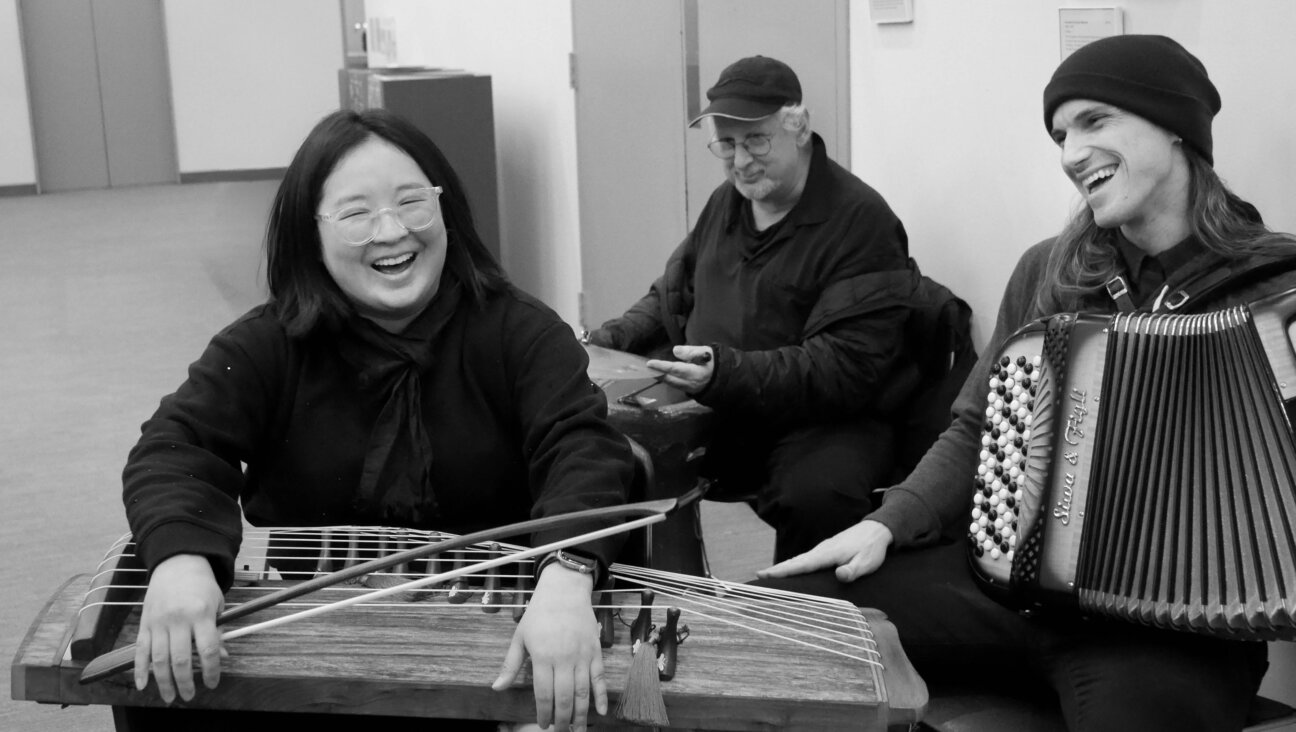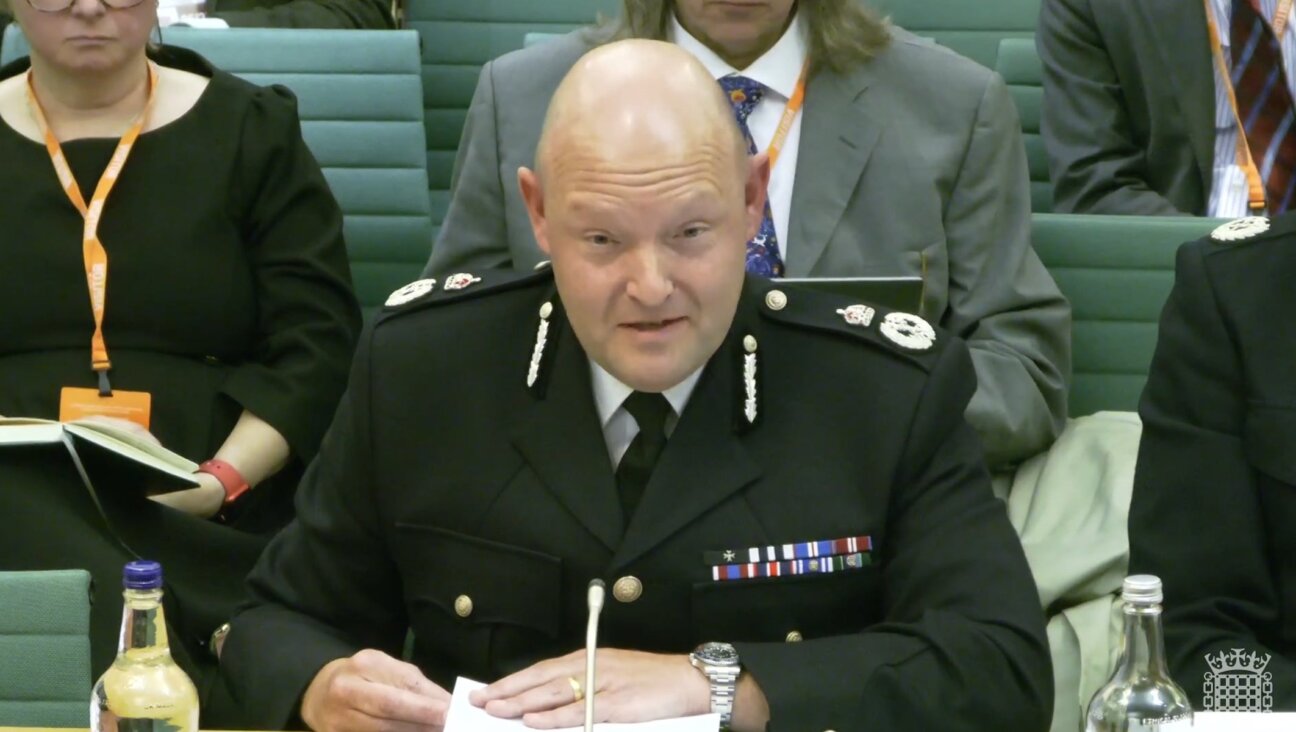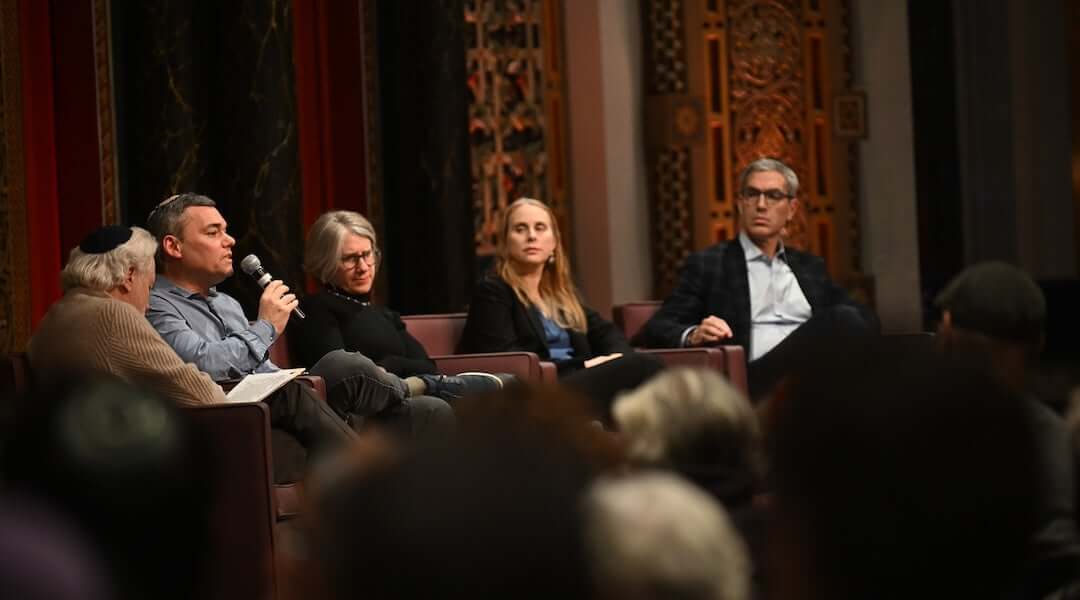Harvard’s Yiddish studies program is in danger — from self-inflicted wounds
The denial of tenure to one scholar and time caps on two others is creating unnecessary chaos

Photo by Daderot/Wikimedia Commons
Harvard’s denial of tenure earlier this year for its sole tenure-track Yiddish professor damages not only the university’s Yiddish and Jewish studies programs, but also its scholarly reputation overall.
The professor, Saul Noam Zaritt, is a respected scholar whose work shows how Yiddish literature moves within global publishing markets, and how Yiddish writing mediates between and traverses cultures. He is innovative, bringing digital humanities tools to bear on literary study, and in 2014 co-founded In geveb, a Yiddish studies journal where I currently serve as editor-in-chief.
Zaritt’s is the kind of bold scholarship that one might expect from a prestigious, leading research university like Harvard. But under Harvard’s rules, the June tenure denial means he has to leave his position at the end of this academic year.
The many undergraduate and graduate students who have publicly expressed upset over Zaritt’s impending departure are a testament to his prioritization of mentorship and teaching despite the tenure clock’s demands of scholarly publication. Dismissing him is deeply harmful to all students wishing to study Yiddish literature and related subjects at Harvard.
And it is only one of several forthcoming changes that will leave Yiddish studies at Harvard in true crisis.
The two other faculty members who teach in Yiddish studies, Jules Riegel and Sara Feldman, are both subject to a time cap, a Harvard policy that prevents non-tenure-track faculty from teaching longer than eight years. As members of the newly-formed union Harvard Academic Workers argued in a recent Inside Higher Ed article, this policy is disruptive and disrespectful to the faculty members, and also has profound implications for the state of teaching at the university. Time-capped faculty are currently seeking signatures on a petition calling on the university to end this destructive policy.
Riegel is one of the only scholars at Harvard teaching a course touching on multiple aspects of the Holocaust. Their work focuses on cultural endurance — in particular, on the way communities facing existential crisis expressed themselves through music. It is powerful, often agonizing work, and Riegel brings it to bear in teaching students about the devastation of the Holocaust in ways that give voice to victims’ perspectives and restore their dignity in the historical narrative.
Riegel’s teaching is essential to the functioning of a robust Jewish studies program, or even indeed a robust history program, at Harvard. But in 2026, their contract will be up.
Feldman teaches all levels of the Yiddish language at Harvard, a critical building block of the Yiddish studies program, because facility with language enables broader research in literature, culture and history. She has a reputation for encouraging students’ creativity, and urging them to engage with Yiddish in its diversity and transnational dimensions. She also tirelessly pursues opportunities to expand her knowledge of language pedagogy and emancipative, justice-oriented pedagogy.
But Feldman, too, will be forced to leave Harvard in 2026.
Harvard’s time-cap policy is an injustice at the individual level, requiring talented, qualified people whose labor contributes to the prestige and success of the university to live their lives with precarity.
It is also a terrible policy for the institution, making it difficult to envision and enact long-term plans for curricular development or to build up institutional memory. For Yiddish studies in particular, which stands to lose three leaders in the field and will have to start again from scratch, it is an absolute trainwreck.
Even if Riegel, Feldman and Zaritt are replaced by other scholars, the relationships they have built with students, the university community, and beyond; the curricula they have developed; and the student projects they have advised will all have to be rebuilt from the ground up. And the careers and lives of three successful, hardworking and important scholars will be upended in the process.
As a non-tenure-track associate professor of Yiddish at the University of Chicago, I can attest to the advantages of working without a time cap. Knowing I can be in my position long term is good for my family, for my involvement in the community, for my own sense of purpose. It is good for the university where I teach, and for my students.
Students deserve instructors with long-term stability. The program does, too. And so does the whole field of Yiddish studies, and frankly, all of academia. We all deserve more from all of our institutions, especially those that purport to be leaders.















